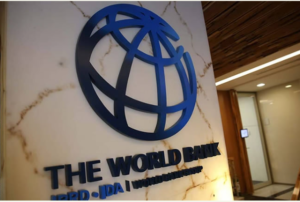Nigeria’s Poverty Rate Expected to Exceed World Bank’s 104 Million Estimate Soon – Economists
Nigeria’s Poverty Rate Expected to Exceed World Bank’s 104 Million Estimate Soon – Economists

Following recent increases in fuel prices and ongoing food supply issues, economists warn that the number of Nigerians living below the poverty line may soon surpass the 104 million figure projected by the World Bank in 2023.
The World Bank’s report, released in December last year under the title “Turning the Corner: From Reforms & Renewed Hope to Results,” indicated that Nigeria’s poverty rate had risen from 40% in 2018 to 46% in 2023, resulting in an increase in the number of impoverished individuals from 79 million to 104 million.
The report attributed this rise to sluggish economic growth and escalating inflation, which pushed an additional 24 million people into poverty. It also noted a significant rise in poverty in both urban and rural areas, with urban poverty increasing from 13 million to 20 million and rural poverty rising from 67 million to 84 million.
The World Bank had anticipated that economic reforms introduced by President Bola Tinubu, starting from 2024 and extending to 2026, would address this issue. However, in an interview with Saturday PUNCH, several economists expressed concerns that recent policy decisions, including the latest fuel price increase, could push the number of impoverished Nigerians beyond the World Bank’s estimates.
Taiwo Owoeye, a Professor of Development Economics at Ekiti State University, Ado Ekiti, noted that the fuel price hike, which has led to a 45% increase in transportation costs, will exacerbate inflation and negatively impact the cost of essential goods. He pointed out that wages have not risen correspondingly, with many states still not implementing the N70,000 minimum wage, which will likely drive more Nigerians into poverty.
“It will certainly push more Nigerians below the poverty line. The 45% increase in fuel prices will ripple through the economy, affecting all sectors and worsening the economic situation for many,” Owoeye said.
Tobi Awolope, an agricultural economist from the Centre for Agricultural Development and Sustainable Environment at the Federal University of Agriculture, Abeokuta, also expressed concerns about the impact of the fuel price hike on the already dire food crisis. She highlighted that, coupled with irregular rainfall patterns and climate change, the fuel price increase could significantly worsen the economic plight of the poor.
“It’s very possible that the number of poor Nigerians could exceed 100 million. The combination of rising fuel prices and environmental challenges could have severe long-term effects,” Awolope said.
TRENDING SONGS
 Shock in Anambra: Bride Disappears Moments Before Wedding
Shock in Anambra: Bride Disappears Moments Before Wedding
 Nigerian Woman Returns ₦330 Million Accidentally Credited to Her Account
Nigerian Woman Returns ₦330 Million Accidentally Credited to Her Account
 APC Don Reach Morocco?’ VeryDarkMan Reacts to Seyi Tinubu Poster
APC Don Reach Morocco?’ VeryDarkMan Reacts to Seyi Tinubu Poster
 Bride Breaks Down in Tears as Wedding Meals Were Kept Secretly While Guests Go Home Hungry
Bride Breaks Down in Tears as Wedding Meals Were Kept Secretly While Guests Go Home Hungry
 Odogwu by Day, Robber by Night: How Marriage Joy Turned Into Tragedy
Odogwu by Day, Robber by Night: How Marriage Joy Turned Into Tragedy
 Nigerian Officials Allegedly Pocket N4–6B Weekly Through Smuggling Cartels at Seme–Badagry Border
Nigerian Officials Allegedly Pocket N4–6B Weekly Through Smuggling Cartels at Seme–Badagry Border
 Ahmad Yerima: Naval Officer to Face No Sanctions After Clash with Wike – Matawalle
Ahmad Yerima: Naval Officer to Face No Sanctions After Clash with Wike – Matawalle
 Trending Video: Muslim Man Joins Wife in Hallelujah Challenge ‘Dress Like Your Miracle’ Night
Trending Video: Muslim Man Joins Wife in Hallelujah Challenge ‘Dress Like Your Miracle’ Night
 Woman Seeks Advice as Late Brother’s Wife Refuses to Mourn Him Following His Death With Alleged Mistress
Woman Seeks Advice as Late Brother’s Wife Refuses to Mourn Him Following His Death With Alleged Mistress
 Nobody Cares About Fine Girls In The UK, I Miss Nigeria — Nigerian Lady Laments
Nobody Cares About Fine Girls In The UK, I Miss Nigeria — Nigerian Lady Laments
Share this post with your friends on ![]()













